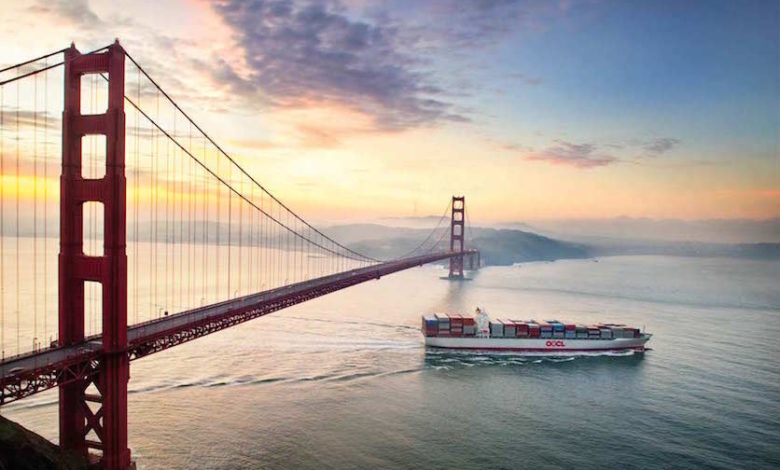The gloom of waiting for the turnaround

As OOCL’s CC Tung pointed out earlier this week major global economic issues will hold back box shipping for the next five years. Of course dry bulk is in the same boat too. Global economic and geopolitical problems continue to hamper any growth in most segments of maritime shipping. The key question is, how long will this last? Or even, are cycles over?
First we look at the US and China and then wonder if are there broader questions that have not been asked but need to be addressed?
Let’s look at China. Tung points out that China has avoided a hard landing. Linette Lopez, at Business Insider, has discussed a recent HSBC research note which posits that China may have rebalanced its economy prematurely. Clearly, the Chinese leadership is dealing with a slowdown in economic growth, intentional or otherwise. There may have been a mistiming of policies but Tung is correct.
Tung says the US may have passed the “most difficult period in this cycle.” But the major US problem may be that its recovery is so mediocre because there is a structural problem that is not being addressed. Tung may be too optimistic here. The fact that the recovery has only gone to the very rich while wealth inequality has continued to increase indicates that the path forward is heading to political unrest. It appears that political leaders have few new thoughts on how to attack the problem. Neither US candidate for president, Donald Trump nor Hillary Clinton, proposes the massive, multi-trillion dollar, infrastructure projects that would get money in the hands of the workers. When he took office, Obama failed by not tying a huge infrastructure bill to the Wall Street bailouts. And, would either current candidate appoint Federal Reserve board members who would cease the low interest rates which have created bubbles and simply loaned billions to Wall Street banks, hedge funds, and private equity firms? Remember how low rates helped destroy dry bulk shipping.
China has a great advantage over the US because it is run by engineers rather than politicians and lawyers. China has evolved from a country which was based on an ideology, communism, to a country which is based more on pragmatism. When programs fail they are changed. In the US the president who was pragmatic was Franklin Delano Roosevelt. FDR would try programs. If they succeeded, they were continued; if they failed, they were dropped. In contrast the Obama administration has continued with a very middling economic policy which has failed to do anything but increase income inequality. In 2008 people voted hoping to get an FDR, instead they got a James Buchanan. Buchanan being the president most consistently voted by historians as the worst in US history.
Another huge negative is the desire for the United States to push its values on various populations throughout the world. In the Middle East the result has been a string of failed states, countries where the strong leaders have been replaced by vacuums: Iraq, Syria, and Libya.
In Asia US policies could very well hinder the development of trade through the South China Sea.
As clashes develop in that area, Asian countries could very well end up having to choose one of two sides: The Chinese block with participation in the Belt and Road Initiative or the US side with very low growth. And if the US causes mischief in the South China Sea all maritime trade may be adversely affected.
Several very broad questions may also need to be considered in trying to determine if there is an upturn in the global economy, hence in shipping. First, is democracy compatible with capitalism?
Or does the freedom of capitalism simply allow those with power to accumulate more wealth and power to the detriment of those at the lower levels of the economic ladder? Does concentration of wealth hinder growth in an economy? With a large population on the Earth, does the economy become a zero-sum game? Does a large population create shortages and then do these shortages provide an opportunity for the wealthy to increase inequality by raising prices for items in demand? Think of the recent price hikes by several pharmaceutical firms.
The problem is not that the current US candidates for president don’t have the answers to these questions; it is that they are not even looking at these questions. They simply cling to ideologies based on beliefs, not data. Sadly the current election is even worse. Each candidate’s personality dominates the public discussion. Issues are ignored.
Of these questions the most alarming situation would be if in fact the large world population growth has devolved the global economy to a zero-sum game with increasing wealth inequality.
How would this situation ever be turned around? The results will not be very pretty. For example one cannot help but wonder how much the increasing poverty contributes to the susceptibility of youth to religious based terrorism.

Stop talking about politics and presidents please. Obama, as much as I hate to admit, is one of the best president in the last whatever amount of years. Period. Like it or not.
I always liked Bill Clinton myself – alright Pepe, I hear ya — enough politics!!
military strategic systems….This oped is rather serious.
Pepe, wait for Hillary, theyr just getting ‘better’, might get a few more bombing campaigns with no congressional support, or UN approval, who cares about that, right? That’ll help.